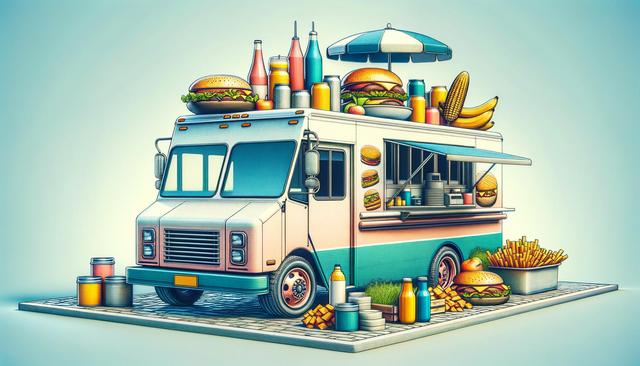A Brief History of Food Trucks
Food trucks have a surprisingly long and rich history that dates back to the late 17th century, evolving from pushcarts and chuckwagons to the modern mobile kitchens we see today. Initially, they served as convenient options for laborers and travelers who needed quick, affordable meals. Over time, these mobile vendors adapted to the changing tastes and demands of urban populations. The rise of the gourmet food truck, especially in the early 2000s, marked a significant turning point. No longer just purveyors of fast snacks, food trucks began offering high-quality, innovative dishes that rivaled traditional restaurants.
Urban centers and college towns became hotbeds for this movement as chefs sought lower overhead costs and more direct connections with customers. The flexibility of food trucks allowed culinary entrepreneurs to test new concepts without the financial burden of a brick-and-mortar location. This trend has since expanded globally, with cities hosting annual food truck festivals that attract thousands of visitors.
The Diverse Offerings of Food Trucks
One of the most exciting aspects of food trucks is the sheer variety of cuisines available. From Korean-Mexican fusion to vegan comfort food, food trucks cater to a wide range of tastes and dietary preferences. This culinary diversity is part of what makes food trucks so appealing to urban dwellers and travelers alike.
Some popular types of food trucks include:
- Taco and burrito trucks
- BBQ and smoked meats vendors
- Vegan and plant-based cuisine trucks
- Specialty dessert trucks serving items like ice cream or cupcakes
- Ethnic cuisine trucks offering dishes from around the world
Beyond offering diverse food options, many food trucks focus on locally sourced ingredients and sustainability, enhancing their appeal to environmentally conscious consumers. This commitment to quality and ethics further establishes food trucks as a respected part of the culinary world.
Food Trucks as Community Builders
More than just places to grab a bite, food trucks often act as community hubs. They gather people in public spaces, bring life to underused areas, and create informal gathering spots that encourage social interaction. Events like food truck rallies and neighborhood pop-ups help foster a sense of community and local pride.
Food trucks contribute to local economies by:
- Providing job opportunities for chefs, servers, and support staff
- Collaborating with local farms and suppliers
- Generating foot traffic to nearby businesses and public spaces
By attending local events, festivals, and farmers markets, food trucks embed themselves in the social fabric of their communities. Many even partner with charities and schools to support fundraising efforts and community outreach programs, reinforcing their role as more than just a mobile kitchen.
The Challenges and Realities of Running a Food Truck
Despite their popularity, running a food truck comes with its own set of challenges. Unlike traditional restaurants, food trucks must navigate a unique mix of regulatory, logistical, and operational hurdles. Permitting and parking regulations vary widely from city to city, often requiring substantial time and effort to comply with local laws.
Operational challenges include:
- Limited kitchen space, which constrains menu variety and food prep
- Weather dependence, as bad weather can drastically reduce customer turnout
- Maintenance issues with the vehicle and kitchen equipment
- Competition with other food trucks and nearby eateries
Moreover, the long hours and physical demands of operating in a confined space can take a toll on food truck operators. Success in this field often requires resilience, creativity, and a deep passion for food and customer service. While the barriers to entry may appear lower than traditional restaurants, the day-to-day reality is far from easy.
The Future of Food Trucks
Looking ahead, the food truck industry shows no signs of slowing down. As technology and consumer habits continue to evolve, food trucks are adapting to stay relevant and competitive. Many are now embracing digital ordering systems, social media marketing, and online scheduling tools to enhance customer experience and streamline operations.
Emerging trends in the food truck world include:
- Collaborations with breweries and wineries
- Seasonal and rotating menus to keep offerings fresh
- Use of eco-friendly packaging and sustainable practices
- Expansion into suburban and rural areas
As urban spaces become more dynamic and consumers seek out unique, high-quality dining experiences, food trucks are well-positioned to continue thriving. Their mobility, adaptability, and innovative spirit make them a lasting fixture in the modern food scene.








